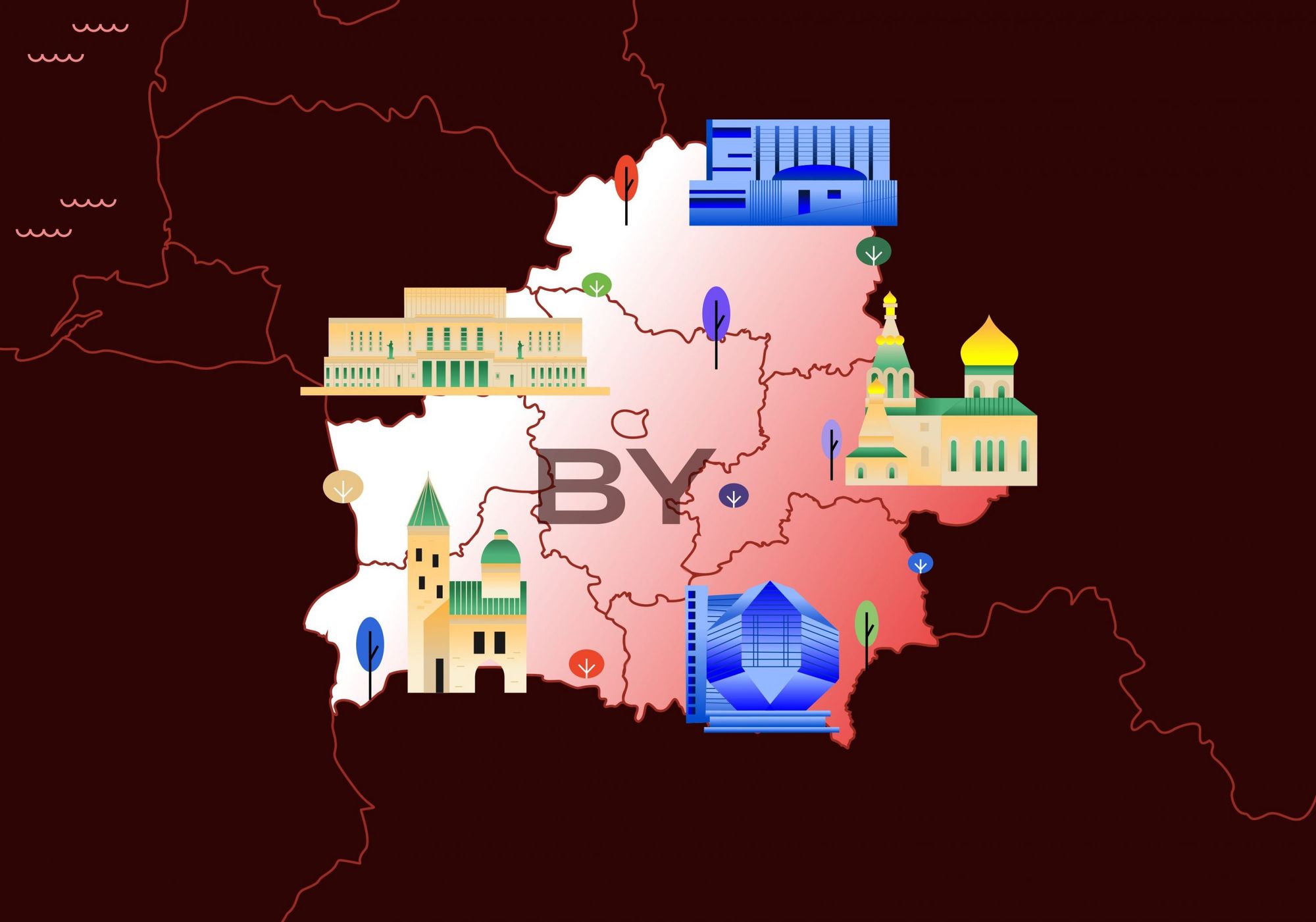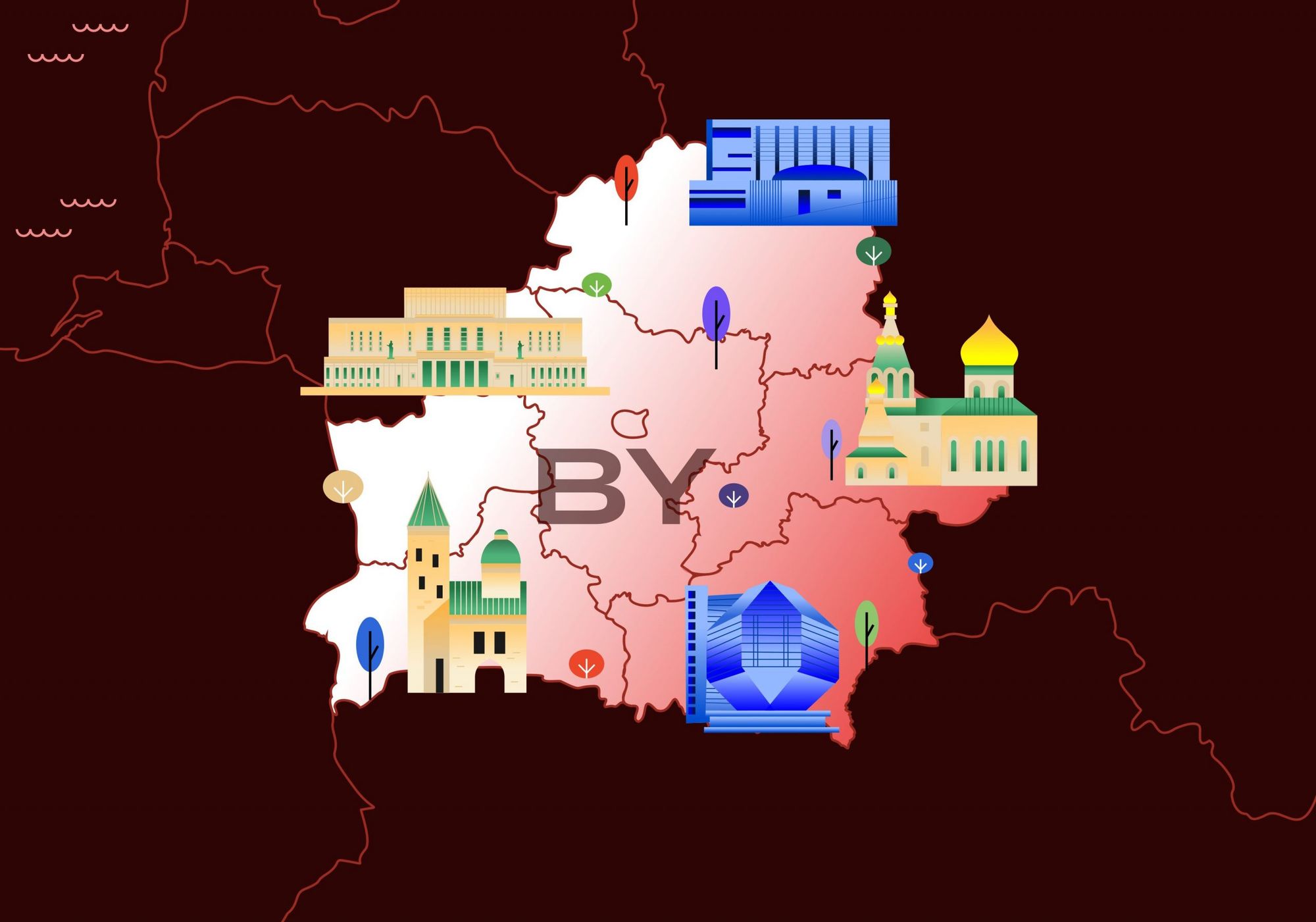More than thirty years have passed since the dissolution of the Soviet Union, which left an enormous economic and political void in Central and Eastern Europe. In this series of articles, we explore the responses of the countries of the region to the new circumstances: how they could adapt to capitalism, how successful their democratization was, and what lessons they can learn from each other. We discuss Belarus in Part V.
The contemporary history of Belarus is fundamentally different from the past few decades of the previously discussed four countries. To put it mildly, Belarussian democracy is broken. The country was dipping its toe in the lake of democracy, but it seems it does not feel like swimming in it. Perhaps Belarussian society was not ready for independence; in the election held in March 1990, 312 of the 345 elected representatives were from the Communist Party. In July 1990, Belarus declared its national sovereignty, granting the country independent foreign policy, currency, and financial system. The declaration even proclaimed Belarusian law as prevailing over Soviet law; still, it seems that Belarussians did not expect the dissolution of the Soviet Union in 1991. In March 1991, 82.7 % of the population said that maintaining the union with Russia would benefit the country, but on 25 August, full independence from the USSR came out of the blue.
In all the countries discussed earlier, people wanted the changes. They welcomed privatization and market liberalization; they wanted to open to the West and be an integral part of the free world. Belarussians brought a different mentality from their Soviet past. Another, perhaps even more important, problem was the country’s heavy institutional and political dependence on the old regime. This made it difficult to build up a viable alternative to the Communist Party that could reach the masses. Wealth, experience, and the media were all concentrated in the hands of those actors who had already been in leading positions in the Soviet era.
The country’s new constitution was adopted in March 1994, and the first national elections were held in the summer of the same year. The incumbent prime minister, Vyacheslav Kebich, was expected to win the presidency easily, despite the many candidates against him. However, the population was inexperienced in democracy; thus, with basic rhetoric skills, it was easy to mobilize voters. Alexander Lukashenko, a younger, populist candidate with catchy political slogans, who could sell himself as the candidate of the ordinary people against the corrupt elite, won with a landslide victory. This is how the authoritarian leader of Belarus, who is still in power, was democratically elected 28 years ago.
At the core of Lukashenko’s political agenda was the nostalgia for the Soviet Union and the strengthening of Russian-Belarussian relations. In his first years, he aimed to consolidate his power which led him to censor the media, assault his political opponents and appoint only loyal people as regional leaders. Over the years, he turned the Constitutional Court, the National Bank, and the press to serve his own interests. The next election was scheduled for 1999, but a minor trick was enough to prevent it: the date of the president’s inauguration was changed, and no election was held. When the opposition finally forced the presidential election, the real results were simply ignored.
Lukashenko soon realized that in the political environment of the time, there was no need to negotiate with the opposition. What is more, he felt that making compromises would be disadvantageous, so Belarussian politics became a winner-take-all scenario. The new Belarussian system became very similar to the Soviet one, where loyalty was the key to getting into a position. The difference is the absence of the ruling party, with all powers concentrated in Lukashenko’s hands, leaving lower-level legislators little room to maneuver.

Meanwhile, ties were further deepened between Minsk and Moscow. Despite having few industrial raw materials, Belarus has a relatively strong military and heavy industry. Moreover, to compensate for the lack of raw materials, Belarus became a pioneer in research and development in the Soviet Union, helped by the generally high level of education. Over the years, there have been many economically reasonable collaborations and agreements between the two countries, with leaderships’ having a similar vision, heavily influenced by Soviet nostalgia.
Belarus can hardly be called democratic, and the Belarussian economy’s adaptation to capitalism is also far from perfect. Still, the country can be proud of some economic results. The export value of the IT sector was $2.7 billion in 2020, accounting for 4 percent of the country’s total GDP. The Belarussian IT industry has been strong and successful, with world-class companies, such as Wargaming, founded in Minsk, and Viber, which development was outsourced to Belarus for many years. But it is also sensitive to the country’s hostile political climate, which has already been prevailing for decades. After the 2020 presidential election, which was not free and fair, just like all other elections since 1995, 20,000 IT workers have left the country. This number may not yet be a fatal wound to one of the country’s most competitive industries, but it is damaging to a large extent.
Probably there are no good examples in contemporary Belarussian history that other countries should follow, but they can learn from the country’s mistakes and unfortunate failures. Just like individuals, societies should sometimes step out of their comfort zones and try something new instead of getting bogged down in nostalgia. Belarussians’ mentality is a factor that contributed to the present situation of the country, that it made much less development since 1990 than any other state in the region. Nonetheless, Lukashenko’s enormous personal responsibility should also not be forgotten.
Another warning lesson is that a country cannot be sure that its people will always want to live in its territory. If a country has a highly-skilled, intellectual community whose members are capable of producing competitive goods and services for the global market, then the country’s leadership must value them and try to govern in a way that does not force them to move abroad. In today’s globalized world, it is easier than ever for a talented young person from seemingly hopeless places like Minsk to move to San Francisco for a better life.
We will explore Poland’s contemporary history in the next part.
The last part of the series is available here.

Motherhood through the camera lens | Interview with Luca Markó

Touchable dessert experiences | The collaboration of Naspolya Nassolda and Renáta Zsiga










